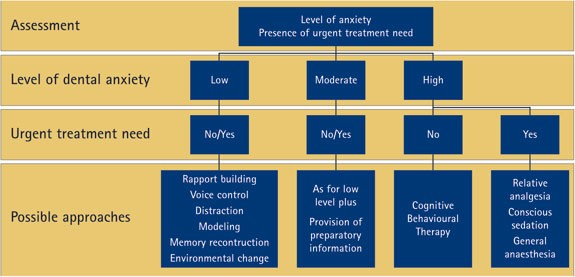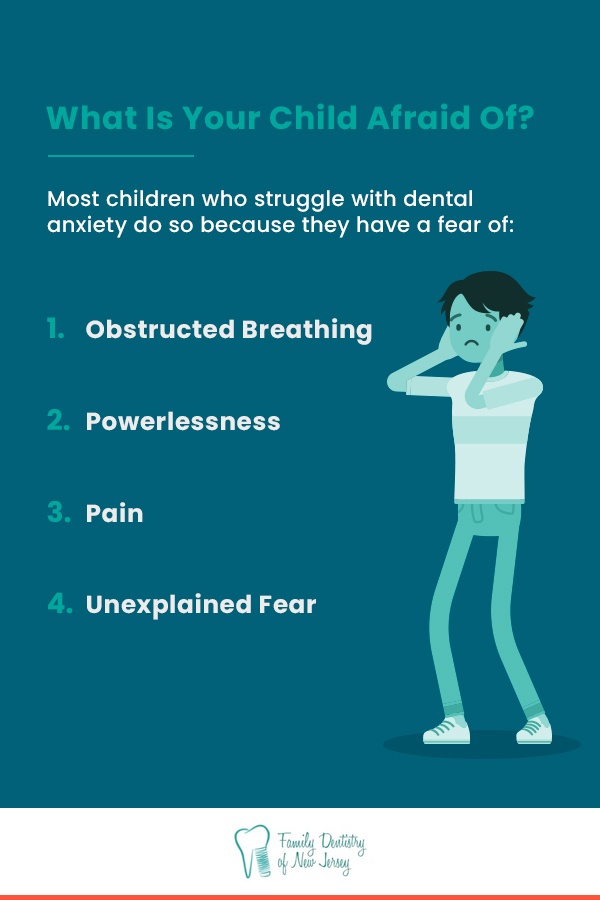Dealing With Dental Anxiety in Children: Tips for Parents
Are you tired of the constant battle to get your child to the dentist? We get it, dental anxiety in children can be a real struggle. But fear not, because we’re here to help!
In this discussion, we will explore practical tips for parents to tackle dental anxiety head-on and make those dental visits a breeze. From recognizing the signs of dental anxiety to preparing your child for appointments, we’ve got you covered.
So, if you’re looking for effective strategies to ensure your child’s dental health without the stress, keep on reading.
Recognizing Dental Anxiety Signs
Recognizing dental anxiety signs is crucial when it comes to helping children overcome their fear of the dentist. As a parent, it’s important for you to be aware of the signs that indicate your child may be experiencing dental anxiety.
One common sign is excessive worry or fear leading up to a dental appointment. Your child may express their anxiety through statements like, ‘I’m scared of going to the dentist’ or ‘I don’t want to go.’
Another sign to look out for is physical symptoms such as stomachaches, headaches, or trouble sleeping the night before a dental visit. Some children may also exhibit behavioral signs of anxiety, such as being excessively clingy or irritable on the day of the appointment.
It’s important to recognize these signs early on so that you can address your child’s anxiety and provide the necessary support. By understanding their fears and offering reassurance, you can help your child navigate their dental visits with greater ease and confidence.
Communicating Openly With Your Child

When it comes to dealing with your child’s dental anxiety, open and honest conversations are key. By discussing their fears and concerns, you can build trust and make them feel supported. Remember to address their fears with empathy, validating their feelings and providing reassurance.
Encourage them to ask questions and actively listen to their thoughts and worries.
Honest Conversations Build Trust
To build trust with your child, openly communicate with them about their dental anxieties. It’s important to have honest conversations with your child to understand their fears and concerns. Start by creating a safe and comfortable environment where they feel comfortable expressing themselves. Encourage them to share their thoughts and feelings about going to the dentist. Listen actively and validate their emotions, letting them know that it’s normal to feel anxious.
Provide age-appropriate information about dental procedures, explaining what’ll happen during the visit and addressing any misconceptions they may have. Be open to answering their questions and addressing their concerns. By having honest conversations, you can help alleviate their fears and build trust between you and your child.
Address Fears With Empathy
Start by empathizing with your child’s fears and concerns about going to the dentist. It’s important to understand that dental anxiety is common among children and can be caused by various factors such as fear of pain, unfamiliar environment, or previous negative experiences. By showing empathy, you can help your child feel understood and supported.
Here are four ways to address their fears with empathy:
1. Listen actively: Give your child the space to express their feelings and concerns without interrupting or dismissing them.
2. Validate their emotions: Let your child know that it’s normal to feel scared or anxious about dental visits, and reassure them that you’re there to support them.
3. Provide information: Explain what to expect during the dental visit in a calm and age-appropriate manner. Knowledge can help alleviate their fears.
4. Be a role model: Share your own positive dental experiences to help your child feel more at ease and confident.
Encourage Questions and Listening
Encouraging open communication with your child is crucial in addressing their dental anxiety. By creating a safe and non-judgmental space, you can encourage your child to ask questions about their dental visits and express any concerns they may have.
Start by actively listening to their thoughts and feelings, allowing them to speak openly without interruption. Responding with empathy and understanding will help your child feel heard and validated.
Encourage them to ask questions about the dental procedures, so they can have a better understanding of what to expect. Answer their questions honestly and in age-appropriate language, avoiding unnecessary details that might increase their anxiety.
Choosing a Child-Friendly Dentist
When it comes to choosing a dentist for your child, there are a few important factors to consider.
Look for a dentist who specializes in pediatric dentistry and has experience working with children.
A child-friendly dental practice, with a welcoming environment and gentle approach, can help alleviate your child’s anxiety and make their dental experience more positive.
Dentist Selection Tips
To ensure your child feels comfortable and at ease during their dental visits, it’s important to carefully select a dentist who specializes in providing a child-friendly environment. Here are some tips to help you choose the right dentist for your child:
1. Ask for recommendations: Seek recommendations from friends, family, or your child’s pediatrician. They may have experience with dentists who are great with children.
2. Research online: Look for dentists who’ve experience working with children and positive reviews from other parents. Check their website or social media pages for information about their child-friendly approach.
3. Visit the dental office: Schedule a visit to the dental office to assess its child-friendliness. Observe the waiting area, the staff’s interaction with children, and the presence of toys or games.
4. Communicate with the dentist: Have a conversation with the dentist to discuss their approach to treating children and addressing dental anxiety. A dentist who listens and communicates effectively can help alleviate your child’s fears.
Choosing a dentist who understands and caters to your child’s needs will help create a positive dental experience for them.
Child-Friendly Dental Practices
Are you wondering how to find a dentist who’s great with children and creates a child-friendly environment? When it comes to your child’s dental health, it’s important to choose a dentist who understands the unique needs of young patients. Look for a dental practice that specializes in pediatric dentistry or has experience in treating children.
A child-friendly dentist will have a welcoming waiting area with toys, books, and a friendly staff that knows how to make children feel at ease. They’ll also use age-appropriate language to explain procedures and ensure that your child feels comfortable throughout the dental visit.
Additionally, a child-friendly dentist will offer gentle and pain-free treatment options, such as nitrous oxide or sedation, if needed. By choosing a dentist who’s knowledgeable, patient, and compassionate, you can help alleviate your child’s dental anxiety and create a positive dental experience.
Preparing Your Child for Dental Visits
Help your child feel more at ease about going to the dentist by taking proactive steps to prepare them for dental visits. Here are four tips to help you prepare your child for their next dental visit:
1. Start early: Introduce the idea of dental visits to your child at a young age. Talk to them about the importance of dental health and explain what happens during a dental visit. Use simple language and positive reinforcement to make it less intimidating.
2. Role play: Set up a pretend dental visit at home. Take turns being the dentist and the patient. Use a toothbrush and mirror to demonstrate how a dentist examines teeth. This will help familiarize your child with the tools and procedures they might encounter at the dentist’s office.
3. Read books about dental visits: There are many children’s books available that can help educate and prepare your child for dental visits. Choose books that explain the dental visit process in a fun and engaging way. Reading these books together can alleviate any fears or concerns your child may have.
4. Communicate with the dentist: Before the actual visit, talk to your child’s dentist. Share any concerns or fears your child may have. The dentist can then tailor the visit to accommodate your child’s needs and make it a more positive experience.
Using Relaxation Techniques During Appointments
Using relaxation techniques can help your child feel more calm and comfortable during their dental appointments. Dental anxiety is very common among children, and it can make the experience of going to the dentist a stressful one. However, by utilizing relaxation techniques, you can help alleviate their anxiety and create a positive dental experience.
One technique that can be effective is deep breathing. Encourage your child to take slow, deep breaths before and during the appointment. This can help relax their body and calm their mind. You can even practice deep breathing together at home to help them become more familiar with the technique.
Another technique to try is visualization. Ask your child to imagine themselves in a calm and peaceful place, such as a beach or a meadow. Encourage them to focus on the details of this place, like the sound of the waves or the smell of the flowers. This can help distract their mind from any dental-related fears or anxieties.
Distraction techniques can also be helpful. Bring along a favorite toy or book that your child can focus on during the appointment. You can also play their favorite music or movie through headphones to help create a soothing environment.
Lastly, positive reinforcement is key. Offer praise and rewards for their bravery during the appointment. This can help boost their confidence and make future visits more manageable.
Rewarding and Reinforcing Positive Dental Experiences
Now let’s discuss how rewarding and reinforcing positive dental experiences can further help alleviate dental anxiety in children.
1. Offer praise and encouragement: When your child has a positive dental experience, make sure to praise and encourage their behavior. Let them know how proud you’re of them for facing their fears and being cooperative during the visit. This positive reinforcement will help boost their confidence and reduce anxiety for future appointments.
2. Create a rewards system: Consider implementing a rewards system where your child earns a small prize or privilege for each successful dental appointment. This could be as simple as a sticker or a special treat they get to enjoy afterward. The anticipation of receiving a reward can serve as a motivating factor and help your child associate dental visits with positive outcomes.
3. Involve them in decision-making: Empowering your child and involving them in decision-making can help them feel more in control and reduce anxiety. Allow them to choose their own toothpaste flavor or let them pick out a new toothbrush at the store. By giving them a sense of ownership, they’ll feel more invested in their oral health and be more willing to participate in dental visits.
4. Celebrate milestones: Celebrate important milestones in your child’s oral health journey, such as losing their first tooth or completing a certain number of cavity-free check-ups. Acknowledge their efforts and make a big deal out of these achievements. This positive reinforcement will create positive associations with dental care and build their confidence.
Frequently Asked Questions
What Are Some Common Relaxation Techniques That Can Be Used During Dental Appointments?
Some common relaxation techniques that can be used during dental appointments include:
– Deep breathing exercises: By taking slow, deep breaths and focusing on your breathing, you can calm your nervous system and reduce anxiety before and during the appointment.
– Listening to calming music: Listening to soothing music can help distract your mind and create a more peaceful environment. This can help you relax and alleviate any fear or anxiety you may have.
– Focusing on positive thoughts: Thinking positive thoughts can help shift your mindset and alleviate fear or anxiety. By focusing on positive aspects of the appointment or visualizing a positive outcome, you can relax and feel more at ease.
These techniques can be used individually or in combination to help you relax and reduce anxiety before and during your dental appointment.
How Can Parents Reinforce Positive Dental Experiences for Their Children?
To reinforce positive dental experiences for your children, you can start by creating a calm and supportive environment at home. Talk to them about the importance of dental hygiene and make it a regular part of their routine.
When it’s time for their dental appointment, be positive and encouraging, reminding them that the dentist is there to help keep their teeth healthy. Offer rewards or incentives for good behavior and praise them for their bravery.
Is It Normal for Children to Experience Dental Anxiety?
Yes, it’s normal for children to experience dental anxiety. Many kids feel scared or nervous about going to the dentist. It’s a common reaction because they may not fully understand what’ll happen during their visit.
However, there are ways parents can help ease their child’s anxiety and make dental experiences more positive.
Can Dental Anxiety Be Prevented in Children?
Yes, dental anxiety can be prevented in children.
It’s important to create a positive and comfortable environment when it comes to dental visits. You can start by explaining the process in a simple and reassuring way.
Encourage regular dental check-ups and teach good oral hygiene habits.
Additionally, try to avoid sharing any negative experiences or anxieties you may have about the dentist.
What Are Some Strategies Parents Can Use to Communicate Openly With Their Child About Dental Visits?
To communicate openly with your child about dental visits, try using simple and positive language. Explain why dental visits are important and what to expect during the appointment. Listen to their concerns and answer any questions they may have.
Encourage them to express their feelings and reassure them that you’ll be there with them. Use books or videos to help them understand the process.
Lastly, praise and reward them for their bravery and cooperation.
Conclusion
In conclusion, by recognizing the signs of dental anxiety, communicating openly with your child, choosing a child-friendly dentist, and preparing your child for dental visits, you can help alleviate their dental anxiety.
Using relaxation techniques during appointments can also be beneficial in reducing their anxiety. Additionally, rewarding and reinforcing positive dental experiences can further encourage them to overcome their fears and have a positive attitu here de towards dental care.
With your support and understanding, your child can have a more comfortable and pleasant experience at the dentist.
Was this helpful?

Welcome to my website! I am Levi Halpern, a dedicated and passionate professional Cosmetic Dentist with extensive experience in Orthodontic Innovations, Periodontal Care, and Pediatric Dental Care. I am thrilled to have the opportunity to share my knowledge and expertise with you.

